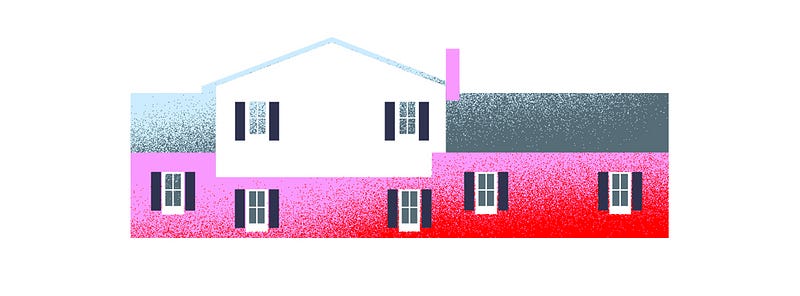 he summer after I learned about Indians, new neighbors moved in across the street. My grandmother said they were Chinese, but my mother corrected her. “Burmese, Mama. Remember what we saw on the news?” They shared a look. This happens a lot when you’re a kid. Adults say something cryptic, then look at each other knowingly, and you’re totally aware that you’re supposed to be pretending you don’t notice. But you always notice.
he summer after I learned about Indians, new neighbors moved in across the street. My grandmother said they were Chinese, but my mother corrected her. “Burmese, Mama. Remember what we saw on the news?” They shared a look. This happens a lot when you’re a kid. Adults say something cryptic, then look at each other knowingly, and you’re totally aware that you’re supposed to be pretending you don’t notice. But you always notice.
I told my mother we should bake them chocolate-chip cookies and welcome them to the neighborhood. She and my grandmother threw their heads back in laughter and walked away from the big front window, back toward the living room. Later my grandmother pulled me into the kitchen and said, “Don’t you go over there with no cookies or nothing else. They probably don’t even know what a cookie is. Those people probably don’t even speak English.”
I stared at her for several seconds before acknowledging I’d heard her. It was the first time I recall being taught that some people were too different from me, and that I should stay away from them for that reason.
That summer my mother told me that our neighbors had come to Fort Wayne because of war. Real war. My mother said bad men were going from house to house, dragging people into the street, and killing them in cold blood. They were killing Christians, my mother told me. If we lived there now, we would be fighting for our lives.
“Why don’t we help them?”
My mother raised an eyebrow.
“We?”
“America!” I can picture my young eyes, wide and watery.
“Why isn’t America doing something to stop them from killing people?”
She sighed and shrugged.
“Baby, it’s complicated. I am much more worried about when they start looking
for jobs. They’re going to take a lot of people’s jobs.”
Of course they needed jobs. How could that be a problem? We were the Good Guys, but we were more worried about jobs than people being killed? That night I stayed up writing a list of all the reasons we should be fighting for the Burmese people…wherever they came from. I put President Bill Clinton’s name in the upper left corner because I knew he was in charge of when and where we went to war. I told him I was willing to go to war, too, but my brother shouldn’t come because he was no good at fighting. I told him I was smart enough to read Romeo and Juliet, that I was so smart my school put me on a bus three times a week to go to a richer school, so I could learn even more.
I signed it, “With liberty and justice for all, Ashley Cassandra Ford.” There was no response.
